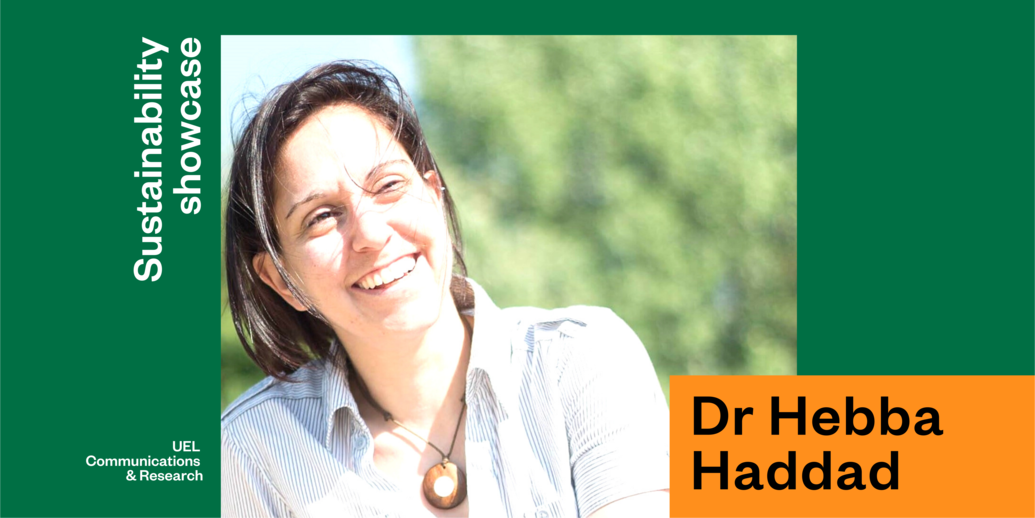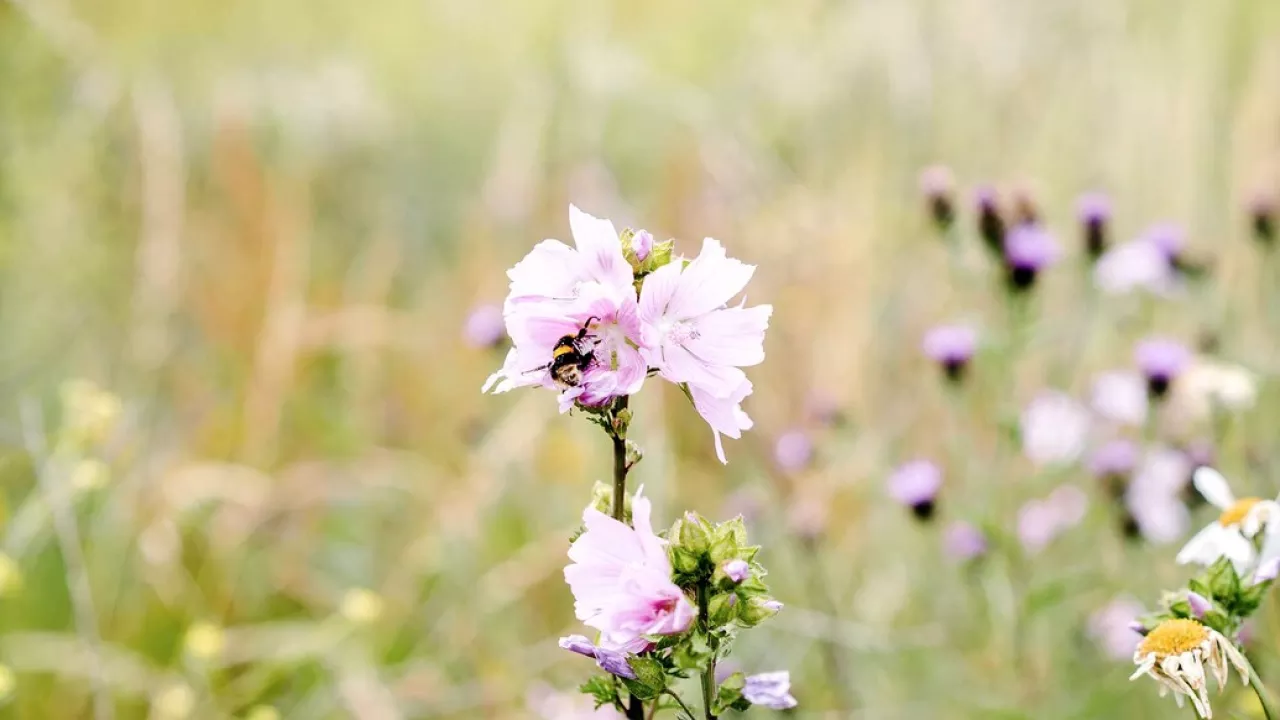Dr Hebba Haddad on environmental psychology
Dr Hebba Haddad on environmental psychology
Published
26 October 2021
Share
The University of East London's autumn sustainability spotlight continues with another interview, this week featuring Dr Hebba Haddad, senior lecturer in environmental psychology in the School of Psychology, and member of the Sustainability Research Institute (SRI).
In this timely interview ahead of COP26, Hebba explores human psychology and the role that people and influencers play in the climate action movement, as well as 'green' solutions to the sustainability challenges that our urban areas face today.

Why are you passionate about sustainability?
Studying for my master's degree in environmental psychology made me aware of sustainability issues like how finite the resources on this planet are, and how humans contribute to this problem but are also significant to the solution.
Since then, I have continued to apply psychological knowledge to sustainability issues during my research and teaching. I have recently been able to design a new BSc (Hons) Environmental Psychology degree at UEL, the first such undergraduate course in the UK!
Can you tell us about the course?
I am very excited about the development and delivery of this new course at UEL. This undergraduate degree gives our students the opportunity to study the reciprocal relationship between humans and the environment.
Students will learn about the different environment settings we find ourselves in and how environments can influence us, for example, the impact on our wellbeing and behaviour; and how our behaviour impacts on the environment, for instance how human behaviour contributes to climate change. This course teaches our students about environmental issues, and psychological approaches to understand human effects of and contributions to these.
In your opinion, what's the biggest challenge society faces today regarding sustainability?
There are several challenges at different levels, which involve various people within society including researchers from science and policy, but also behavioural sciences like psychology, to understand attitudes, acceptability and behaviour change.
As we have seen with Covid-19, we need players in society to work together to respond to an issue that is bigger than all of us. As with the pandemic, we need political leaders to make brave policy decisions based on the science, to allow society from individuals to big businesses, to enact and work collectively to make more sustainable futures. This is both to mitigate and adapt to the consequences of climate change.
The upcoming COP26 is an opportunity for world leaders to take heed of the recent Intergovernmental Panel on Climate Change (IPCC) report, which presents the starkest warning of the effects and closeness of climate change.
Tell us more about a sustainability focused project that you've run or been involved with?
I currently split my time with UEL's School of Psychology and the Sustainability Research Institute.
With SRI one of the projects I'm currently working on with Dr Stuart Connop, Dr Bridget Snaith, and collaborators at the river restoration charity, Thames 21, on a project funded by Thames Water, which is studying Sustainable Drainage Systems (SuDS) as part of the London Strategic SuDS Pilot programme. These are storm water drainage solutions that imitate natural approaches to water management and drainage.
By using 'green' approaches to do this, rather than the tradition of 'grey' pipes, these methods can lead to benefits such as reducing surface water flooding, increasing diversity in nature, and providing better spaces for people. These alternatives to water management play a key role in helping adapt to some of the environmental challenges we begin to face, such as climate change.
What does this project seek to achieve?
The purpose of this research is to build a stronger evidence base to support the mainstreaming of SuDS across our cities, particularly in relation to unlocking funding. We are doing this by trying to gain a better understanding of the perceptions of people who work in organisations relevant to the planning, delivery and stewardship of SuDS.
We are exploring what people see as drivers, barriers and potential knowledge gaps to implementing and mainstreaming SuDS in urban areas.
The findings of this research will feed into a SUDS monitoring programme that we will lead as part of the London Strategic SuDs Pilot Study. It will also provide a foundation for sector-wide SuDS evaluation going forwards.
How did you get into your field of research?
Soon after my MSc, I went on to work as a research associate at the Centre for Transport & Society at the University of the West of England. I worked on a few interesting projects there with some great thinkers.
One project that specifically focussed on sustainability was called 'Future Urban Technologies: Undertaking Research to Enhance Sustainability', which was part of the Engineering and Physical Sciences Research Council's 'Sustainable Urban Environment' programme. We studied how emerging technologies impacted on working practices, which at that time, between 2005 to 2009, was really different to where we are now in terms of technological advances!
Following my research associate post, I went on to do an ESRC CASE PhD studentship at the University of Exeter with support from the Met Office. My PhD examined the communication of climate change information, applying social psychology theory to better understand the process of climate change communications, and how climate messaging can be changed to lead to better public engagement with the information and sustainable behaviours.
I've been lucky to be able to continue to work in this field following my PhD, with my next roles at the Centre for Environmental Policy at Imperial College London and the Environmental Research Group at King's College London. During this time I looked at how people engage with the topic of air pollution, examining how individuals responded to air quality information captured by a portable sensor and relayed via a mobile phone, and if it could change behaviour.
What is one thing people can do today to become more sustainable?
Working towards living sustainably we will need changes in our current lifestyles now and in the long-term. This will mean lots of little incremental changes by everyone, from how we travel to how we eat. For example, switching from using the car to walking or cycling for short journeys. We should also consider reducing our meat consumption.
These small changes in our behaviour can lead to not only sustainability benefits but also health benefits.
Name someone or an organisation that people should follow on this topic?
You can find out more about the SuDS monitoring programme we are involved in called London Strategic SuDS Pilot (LSSPS) on their website. I'd also recommend following the UEL Environmental Psychology Twitter and our YouTube channel.
To find out more about Dr Hebba Haddad's work visit:
Share
Communications team
Contact us for press and interview requests
